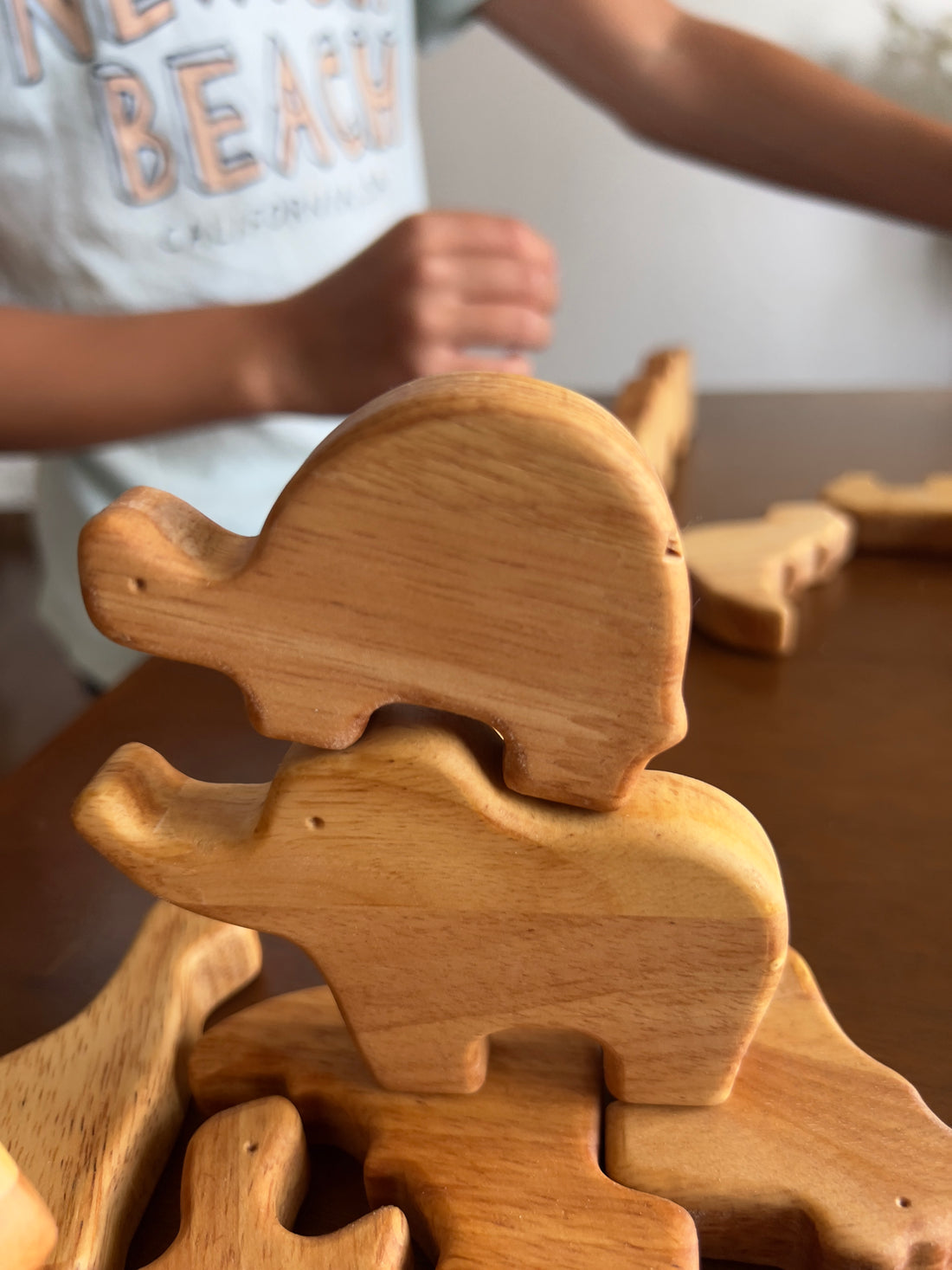Setting the Context
As the world grapples with environmental issues, sustainability remains at the forefront of global conversations. In turn, this focus has prompted consumers to evaluate the environmental impact of their everyday choices, from food to fashion and, yes, even to toys. Consequently, wooden toys have gained prominence as a sustainable alternative to plastic counterparts. But how sustainable are these wooden toys, really? In this comprehensive article, we delve into the various facets of wooden toys’ sustainability, from production to disposal.
What Makes Wood a Sustainable Material?
Firstly, let's understand what makes wood inherently sustainable. Unlike plastic, which is a petroleum-based material, wood is a natural resource. In essence, trees absorb carbon dioxide and provide us with oxygen, thus contributing to a healthier environment. Additionally, responsibly managed forests, which serve as sources for wooden toys, are renewable resources. Furthermore, the production process of wooden toys tends to use less energy, reducing its carbon footprint.
The Importance of Certification
Not all wooden toys are created equal, though. Therefore, it's essential to ensure that the wood used is from certified sustainable sources. Look out for certifications like FSC (Forest Stewardship Council) or PEFC (Programme for the Endorsement of Forest Certification). These labels guarantee that the wood comes from responsibly managed forests. By doing so, you contribute to forest preservation and biodiversity.
Durability and Longevity: Built to Last
Another aspect to consider is the lifespan of the toy. Undeniably, wooden toys are known for their durability. The robust construction and high-quality materials make them less likely to break. As a result, these toys often outlast their plastic rivals. In the long run, fewer replacements mean less waste. Additionally, the timeless design of wooden toys ensures that they stay relevant, often becoming family heirlooms passed down through generations.
Health and Safety: Beyond Environmental Concerns
Also, it's crucial to mention the health benefits of wooden toys. Generally speaking, wooden toys are free from harmful chemicals and toxins commonly found in plastic toys. Hence, not only are wooden toys better for the planet, but they are also safer for your children. Moreover, their simple designs encourage imaginative play, enhancing cognitive and motor skills.
The End-of-Life Scenario: A Responsible Farewell
Unfortunately, even the most durable items reach the end of their life cycle eventually. Nevertheless, wooden toys can be easily repurposed, refurbished, or even composted, unlike their plastic counterparts, which are more likely to end up in landfills. By composting, the wooden toy returns to nature, completing a cycle that leaves minimal impact on the Earth.
Customizability: A Unique Advantage
Yet another advantage is the customizability of wooden toys. Given that they can be easily painted or carved, these toys offer unique personalization options. Thus, they're not just playthings but also potential works of art that can be handed down through generations.
The Challenges: Room for Improvement
Despite these advantages, it's important to acknowledge the challenges that wooden toys face. First of all, quality wooden toys can be more expensive initially, potentially discouraging budget-conscious shoppers. Secondly, not all wooden toys are sourced sustainably; hence the importance of certifications. Lastly, the paint or finish used can sometimes contain harmful chemicals, so it's vital to be vigilant about these aspects.
Tips for Making a Sustainable Choice
In summary, here are a few quick tips for choosing sustainable wooden toys:
- Check for certifications like FSC or PEFC to ensure the wood is sustainably sourced.
- Consider the toy's durability and longevity.
- Investigate the paint or finish for harmful chemicals.
The Takeaway
In conclusion, wooden toys offer a plethora of benefits, from environmental sustainability to health and safety. However, it's essential to be an informed consumer and pay attention to certifications and materials used. So, the next time you're shopping for toys, keep these factors in mind. By doing so, you're not just buying a toy; you're investing in a sustainable future for the planet and a safer, healthier playtime for your children.
Shop for handcrafted wooden toys at SmolBlock with a wide range of toys to choose from!
